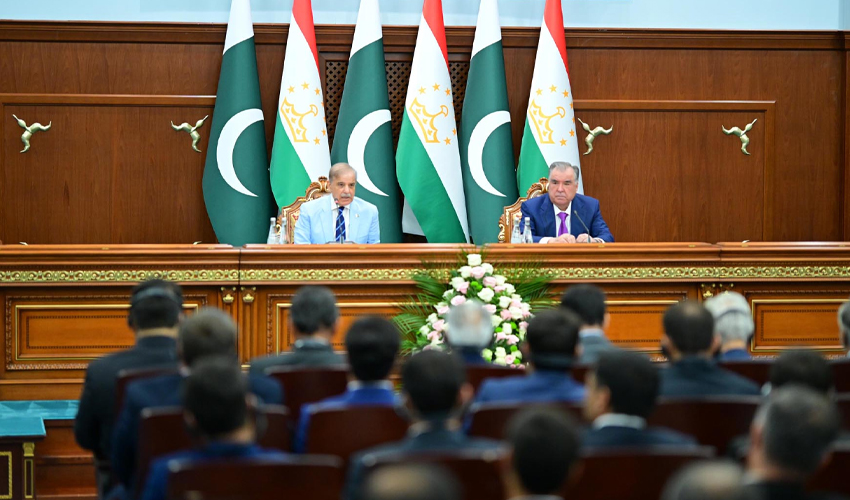Prime Minister Shehbaz Sharif announced that the strategic partnership agreement between Pakistan and Tajikistan will enhance the already strong brotherly relations between the two countries.
During a two-day official visit to Tajikistan at President Emomali Rahmon’s invitation, Prime Minister Sharif and the Tajik President reaffirmed their commitment to deepening the existing relationship between the two nations, grounded in shared history, culture, geographical proximity, and common faith.
The discussions covered a wide range of bilateral cooperation areas, including trade, economy, investment, connectivity, culture, education, science and technology, defense, humanitarian aid, parliamentary exchanges, and people-to-people contacts.
They signed a strategic partnership agreement along with multiple memoranda of understanding (MoUs) and agreements covering various sectors, including aviation, diplomacy, education, sports, social relations, industrial cooperation, and tourism.
PM Sharif updated President Rahmon on the situation in Occupied Kashmir, with both leaders expressing deep concern over severe human rights violations. They also agreed on the necessity of intensified international efforts to establish peace in Gaza and the region.
Upon arrival at Qasr e Millat, Prime Minister Sharif was welcomed by President Rahmon and received a guard of honor. The official ceremony was followed by a private meeting and delegation-level talks.
Later, during a joint press conference, Prime Minister Shehbaz Sharif expressed gratitude for the warm welcome he received throughout Tajikistan. He highlighted the significant progress made during the visit, mentioning the signing of several agreements, including a strategic partnership agreement between Pakistan and Tajikistan.
The Prime Minister also visited the Ismail Samani Memorial and Qasr Nowruz in Dushanbe, further solidifying the cultural and historical ties between the two nations.
High-level delegations from both Pakistan and Tajikistan engaged in comprehensive talks, addressing cooperation on various regional and global issues. The delegations reaffirmed their commitment to strengthening mutual ties based on their shared historical connections and cultural heritage.


